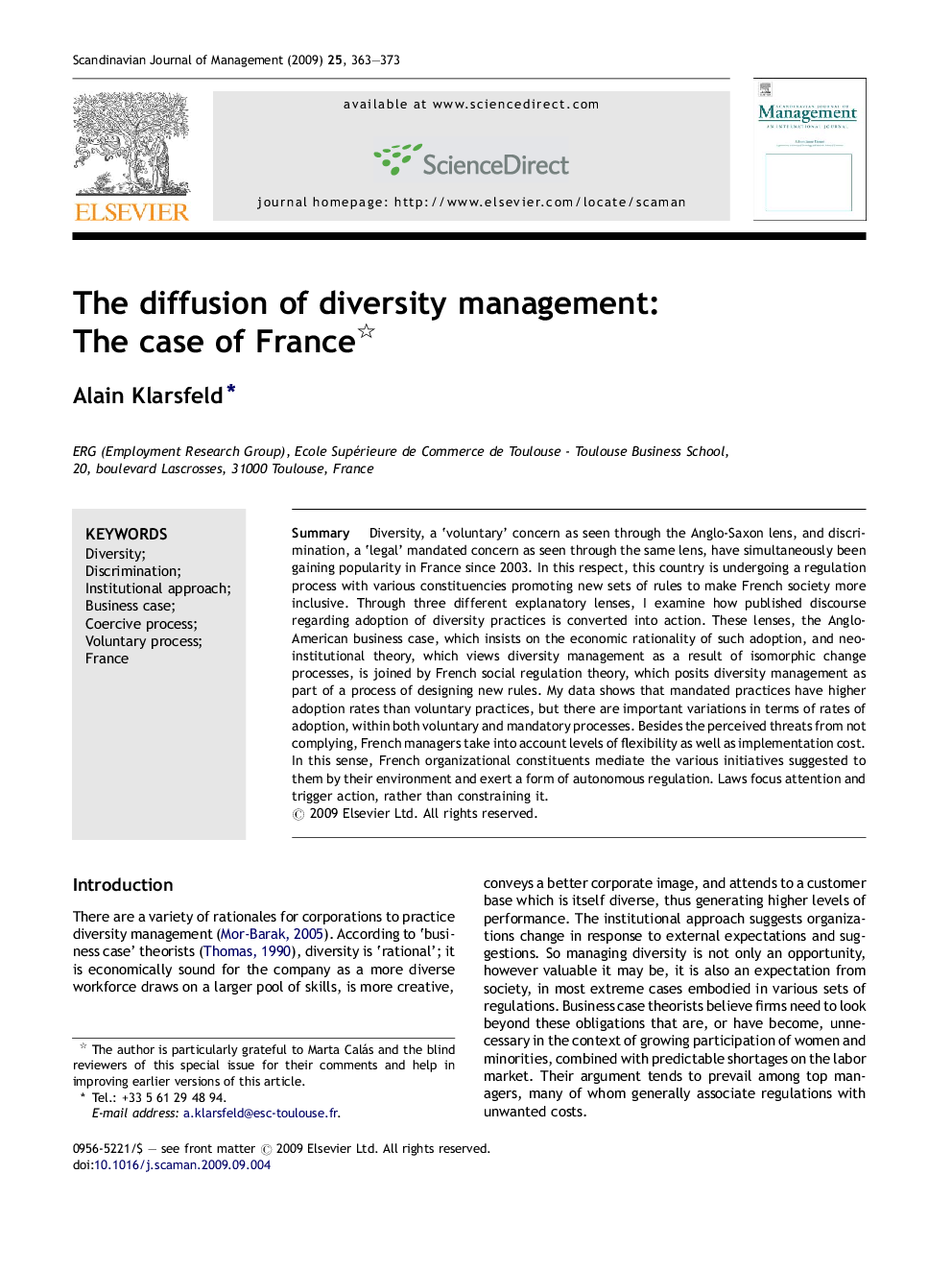| Article ID | Journal | Published Year | Pages | File Type |
|---|---|---|---|---|
| 896213 | Scandinavian Journal of Management | 2009 | 11 Pages |
SummaryDiversity, a ‘voluntary’ concern as seen through the Anglo-Saxon lens, and discrimination, a ‘legal’ mandated concern as seen through the same lens, have simultaneously been gaining popularity in France since 2003. In this respect, this country is undergoing a regulation process with various constituencies promoting new sets of rules to make French society more inclusive. Through three different explanatory lenses, I examine how published discourse regarding adoption of diversity practices is converted into action. These lenses, the Anglo-American business case, which insists on the economic rationality of such adoption, and neo-institutional theory, which views diversity management as a result of isomorphic change processes, is joined by French social regulation theory, which posits diversity management as part of a process of designing new rules. My data shows that mandated practices have higher adoption rates than voluntary practices, but there are important variations in terms of rates of adoption, within both voluntary and mandatory processes. Besides the perceived threats from not complying, French managers take into account levels of flexibility as well as implementation cost. In this sense, French organizational constituents mediate the various initiatives suggested to them by their environment and exert a form of autonomous regulation. Laws focus attention and trigger action, rather than constraining it.
